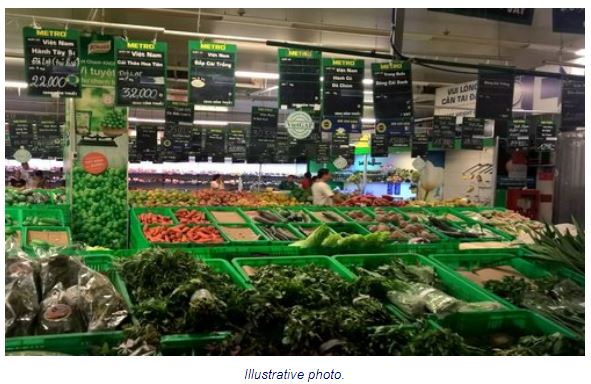Vietnam inflation forecast to exceed c.bank’s 4% target: HSBC
This is unless the government imposes additional measures to curb prices that may, eventually, hurt its budget, said HSBC in its latest research sent to Hanoitimes.
The downside risks to inflation in Vietnam are if the government continues to roll back its reforms to liberalize healthcare costs and/or imposes additional subsidies to certain goods and services, both of which may lead to a wider government budget deficit and, ultimately, higher public debt.
However, HSBC believed this would be counter-productive, given recent positive developments on the fiscal front and potentially bad repercussions if the government were to breach its public debt- to-GDP limit of 65%.
HSBC expected the SBV to react proactively, hiking its policy rate moderately by 25 basic points sometime in the third quarter to curb inflationary pressures and inflation expectations.
The research pointed to just one hike is an acknowledgement that the government is concurrently implementing administrative controls to curb inflation, while the SBV also wants to ensure that credit growth does not fall significantly below its current 17% year-on-year growth target. HSBC believed these factors will ultimately prevent the need for the SBV to tighten monetary policy aggressively.
Nevertheless, administrative measures alone are enough to curb inflation and inflation expectations in the near term. For one, upside risks to inflation persist, given the rapid VND depreciation in recent weeks, which the research expected to translate to higher domestic prices. In fact, it is estimated that Vietnam’s foreign exchange (FX) pass-through is the highest in ASEAN, with 100bp of currency depreciation associated with approximately a 0.25 percentage points increase in Vietnam’s headline consumer price index (CPI).
This is due to the fact that Vietnam is one of the most trade open economies in the region, with imports at around 90% of GDP, which is only second to Singapore, where headline import data reflect the country’s role as a trans-shipment hub.
Recent history also shows that periods of rapid VND depreciation have been associated with high domestic inflation, which may result in higher inflation expectations.
This is a situation that the country must aim to avoid, according to HSBC, given multiple bouts of ‘runaway’ inflation in its recent history. A policy rate hike from the SBV, therefore, would not only be a necessary supplement to administrative measures but also help anchor inflation expectations in the near to medium term.


 Thailand
Thailand




